The average cost of PDA Closure in India approximately ranges between INR 415750 to 540475 (USD 5000 to 6500)
PDA or Patent Ductus Arteriosus is a very common congenital heart disease seen in babies. A newborn baby has Ductus Arteriosus. Now, a common question what is Ductus Arteriosus? It is a hold or an opening that allows the infant blood to skip circulation to the lungs. After birth, the hole remains of no use and therefore it narrows down and closes gradually. The failure of this closure is what is termed as PDA. The bigger the size of the PDA, the higher is the infant's risk of heart failures, bacterial infection and other health problems.
Many reasons cause PDA:-
Although the success rate of this surgery is high however there are still chances of its failure.
Patients may suffer through headaches, fever, infections or even allergic reactions to nickel.
PDA can be detected by ECG, chest x-ray, and Doppler study.
Although there are certain complications that the patient has to face during the surgery, however, due to high success rate, and low maintenance costs after the surgery that include medicines, etc, this surgery is quite helpful for the long run for the infants.
| City | Minimum Cost (USD) | Minimum Cost (INR) | Maximum Cost (USD) | Maximum Cost (INR) |
|---|---|---|---|---|
| Pune | USD 4500 | 374175 | USD 5850 | 486428 |
| Mumbai | USD 5000 | 415750 | USD 6500 | 540475 |
| Hyderabad | USD 5000 | 415750 | USD 6500 | 540475 |
| Chennai | USD 5000 | 415750 | USD 6500 | 540475 |
| Mohali | USD 4500 | 374175 | USD 5850 | 486428 |
Treatment cost

MediGence is offering immense facilities for your medical journey such as:
With us, you are sure to receive all the benefits at competitive prices which is a better choice than paying actual hospital costs. PDA stands for Patent Ductus Arteriosus, which is a minimally invasive procedure to close or block the ductus arteriosus. Specialized cardiac doctors (Paediatric cardiac) use a procedure known as cardiac catheterization to place a small device in the vessel that closes the PDA., We have outstanding options with all kinds of benefits for you to get the PDA Device closure surgery done in Fortis Hospital, Shalimar Bagh, India.

Types of PDA Closure in Sarvodaya Hospital and Research Centre and its associated cost
| Treatment Option | Approximate Cost Range (USD) | Approximate Cost Range (INR) |
|---|---|---|
| PDA Closure(Overall) | 4573 - 8134 | 374681 - 666342 |
| Transcatheter PDA Closure | 4572 - 7122 | 376006 - 583893 |
| Surgical PDA Closure | 5058 - 8133 | 416473 - 667145 |
DOCTORS IN 14 SPECIALITIES
FACILITIES & AMENITIES
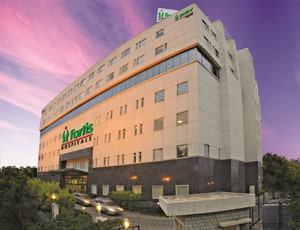
Types of PDA Closure in Fortis Hospital and its associated cost
| Treatment Option | Approximate Cost Range (USD) | Approximate Cost Range (INR) |
|---|---|---|
| PDA Closure(Overall) | 4576 - 8104 | 374887 - 665156 |
| Transcatheter PDA Closure | 4583 - 7126 | 373848 - 579953 |
| Surgical PDA Closure | 5060 - 8104 | 417691 - 664269 |
DOCTORS IN 12 SPECIALITIES
FACILITIES & AMENITIES
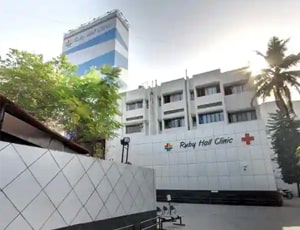
Types of PDA Closure in Ruby Hall Clinic and its associated cost
| Treatment Option | Approximate Cost Range (USD) | Approximate Cost Range (INR) |
|---|---|---|
| PDA Closure(Overall) | 4230 - 7563 | 345786 - 622568 |
| Transcatheter PDA Closure | 4244 - 6550 | 347729 - 534108 |
| Surgical PDA Closure | 4686 - 7487 | 382687 - 609207 |
DOCTORS IN 13 SPECIALITIES
FACILITIES & AMENITIES

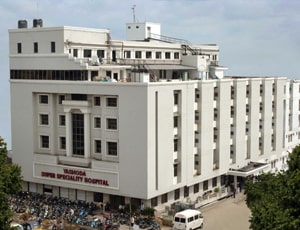
Types of PDA Closure in Yashoda Hospital, Malakpet and its associated cost
| Treatment Option | Approximate Cost Range (USD) | Approximate Cost Range (INR) |
|---|---|---|
| PDA Closure(Overall) | 4585 - 8153 | 372785 - 666708 |
| Transcatheter PDA Closure | 4550 - 7138 | 373773 - 580715 |
| Surgical PDA Closure | 5062 - 8119 | 417231 - 664791 |
DOCTORS IN 10 SPECIALITIES
FACILITIES & AMENITIES
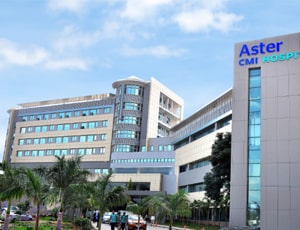
Types of PDA Closure in Aster CMI Hospital and its associated cost
| Treatment Option | Approximate Cost Range (USD) | Approximate Cost Range (INR) |
|---|---|---|
| PDA Closure(Overall) | 4587 - 8115 | 374051 - 663317 |
| Transcatheter PDA Closure | 4578 - 7084 | 373611 - 583349 |
| Surgical PDA Closure | 5094 - 8115 | 417888 - 667254 |
DOCTORS IN 13 SPECIALITIES
FACILITIES & AMENITIES
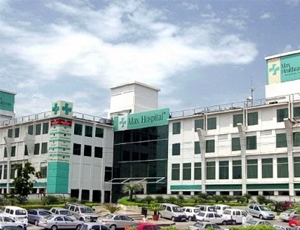
Types of PDA Closure & Its Cost at Max Hospital, Gurgaon
| Treatment Option | Approximate Cost Range (USD) | Approximate Cost Range (INR) |
|---|---|---|
| Transcatheter Closure | 6,000 - 6,800 | 492000 - 557600 |
| Surgical Closure | 6,400 - 7,200 | 524800 - 590400 |
Factors affecting PDA Closure cost in Max Hospital, Gurgaon
| Cost Factors | Cost Range (USD) | Cost Range (INR) |
|---|---|---|
| Initial Consultation Fees | 100 - 200 | 8200 - 16400 |
| Surgeon Fees | 800 - 1,000 | 65600 - 82000 |
| Anesthesia Fees | 400 - 600 | 32800 - 49200 |
| Operating Room Fees | 1,500 - 1,800 | 123000 - 147600 |
| Nursing Care Fees | 200 - 300 | 16400 - 24600 |
| Room Charges (Per Day) | 200 - 300 | 16400 - 24600 |
| Medications and Supplies | 100 - 200 | 8200 - 16400 |
| Diagnostic Tests | 300 - 500 | 24600 - 41000 |
| Pre- and Post-Operative Care | 400 - 600 | 32800 - 49200 |
| Rehabilitation Charges | 200 - 300 | 16400 - 24600 |
| Administrative Fees | 50 - 150 | 4100 - 12300 |
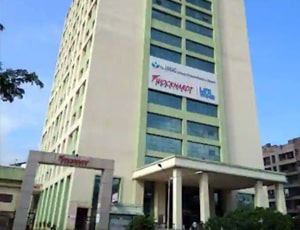
Types of PDA Closure in Wockhardt Hospital, Umrao and its associated cost
| Treatment Option | Approximate Cost Range (USD) | Approximate Cost Range (INR) |
|---|---|---|
| PDA Closure(Overall) | 4586 - 8082 | 373394 - 664488 |
| Transcatheter PDA Closure | 4577 - 7106 | 373224 - 585476 |
| Surgical PDA Closure | 5051 - 8129 | 416061 - 664591 |
DOCTORS IN 13 SPECIALITIES
FACILITIES & AMENITIES
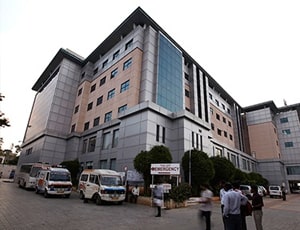
Types of PDA Closure in BGS Gleneagles Global Hospitals and its associated cost
| Treatment Option | Approximate Cost Range (USD) | Approximate Cost Range (INR) |
|---|---|---|
| PDA Closure(Overall) | 5165 - 9190 | 419614 - 732907 |
| Transcatheter PDA Closure | 5030 - 7927 | 421243 - 645128 |
| Surgical PDA Closure | 5633 - 8920 | 459835 - 736215 |
DOCTORS IN 14 SPECIALITIES
FACILITIES & AMENITIES

Types of PDA Closure in Indraprastha Apollo Hospital and its associated cost
| Treatment Option | Approximate Cost Range (USD) | Approximate Cost Range (INR) |
|---|---|---|
| PDA Closure(Overall) | 5164 - 9162 | 420885 - 747857 |
| Transcatheter PDA Closure | 4991 - 7910 | 409117 - 643735 |
| Surgical PDA Closure | 5738 - 8874 | 465559 - 750774 |
DOCTORS IN 14 SPECIALITIES
FACILITIES & AMENITIES
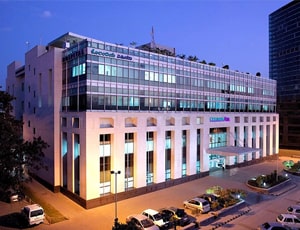
Types of PDA Closure in Manipal Hospital, Yeshwantpur and its associated cost
| Treatment Option | Approximate Cost Range (USD) | Approximate Cost Range (INR) |
|---|---|---|
| PDA Closure(Overall) | 5159 - 9067 | 420822 - 741963 |
| Transcatheter PDA Closure | 5014 - 8036 | 422571 - 645202 |
| Surgical PDA Closure | 5546 - 8803 | 458473 - 751919 |
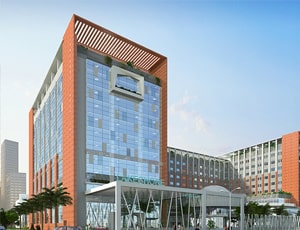
Types of PDA Closure in VPS Lakeshore Hospital and its associated cost
| Treatment Option | Approximate Cost Range (USD) | Approximate Cost Range (INR) |
|---|---|---|
| PDA Closure(Overall) | 4574 - 8113 | 372784 - 662633 |
| Transcatheter PDA Closure | 4557 - 7128 | 376014 - 585274 |
| Surgical PDA Closure | 5089 - 8097 | 416420 - 663694 |
DOCTORS IN 13 SPECIALITIES
FACILITIES & AMENITIES
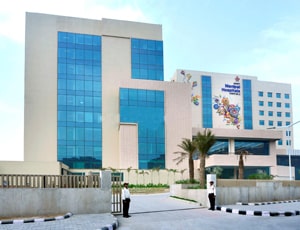
Types of PDA Closure in Manipal Hospital, Dwarka and its associated cost
| Treatment Option | Approximate Cost Range (USD) | Approximate Cost Range (INR) |
|---|---|---|
| PDA Closure(Overall) | 4558 - 8086 | 373224 - 664266 |
| Transcatheter PDA Closure | 4551 - 7091 | 375710 - 581412 |
| Surgical PDA Closure | 5050 - 8152 | 415241 - 663183 |
DOCTORS IN 13 SPECIALITIES
FACILITIES & AMENITIES
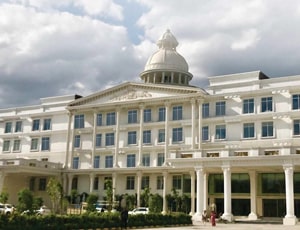
Types of PDA Closure in Dr. Rela Institute and Medical Centre and its associated cost
| Treatment Option | Approximate Cost Range (USD) | Approximate Cost Range (INR) |
|---|---|---|
| PDA Closure(Overall) | 4964 - 9110 | 416680 - 754159 |
| Transcatheter PDA Closure | 4998 - 7883 | 423287 - 639541 |
| Surgical PDA Closure | 5679 - 9133 | 457389 - 740907 |
SPECIALITIES
FACILITIES & AMENITIES
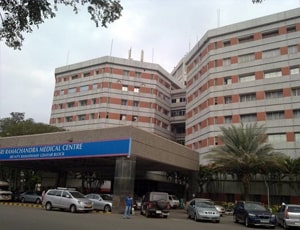
Types of PDA Closure in Sri Ramachandra Medical Centre and its associated cost
| Treatment Option | Approximate Cost Range (USD) | Approximate Cost Range (INR) |
|---|---|---|
| PDA Closure(Overall) | 4582 - 8104 | 374188 - 665479 |
| Transcatheter PDA Closure | 4562 - 7076 | 374933 - 581606 |
| Surgical PDA Closure | 5097 - 8083 | 417025 - 665460 |
DOCTORS IN 10 SPECIALITIES
FACILITIES & AMENITIES
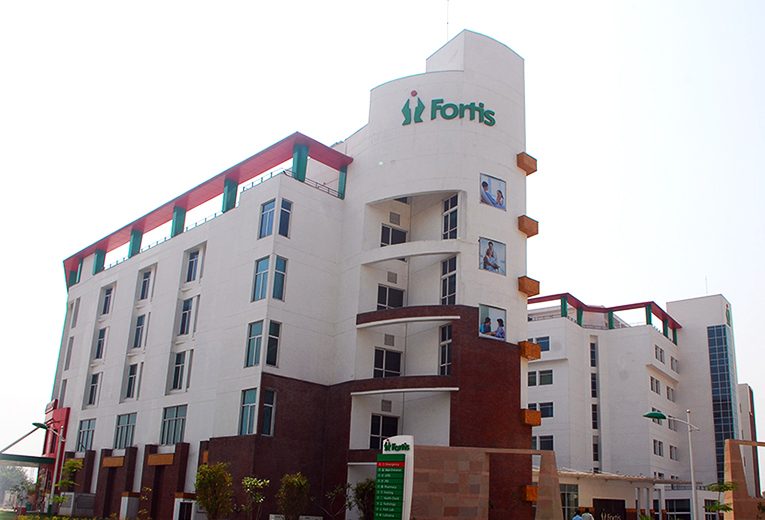
Types of PDA Closure & Its Cost at Fortis Hospital, Shalimar Bagh
| Treatment Option | Approximate Cost Range (USD) | Approximate Cost Range (INR) |
|---|---|---|
| Transcatheter Closure | 6,400 - 7,100 | 524800 - 582200 |
| Surgical Closure | 6,200 - 6,900 | 508400 - 565800 |
Factors affecting PDA Closure cost in Fortis Hospital, Shalimar Bagh
| Cost Factors | Cost Range (USD) | Cost Range (INR) |
|---|---|---|
| Initial Consultation Fees | 150 - 250 | 12300 - 20500 |
| Surgeon Fees | 900 - 1,100 | 73800 - 90200 |
| Anesthesia Fees | 400 - 600 | 32800 - 49200 |
| Operating Room Fees | 1,500 - 1,800 | 123000 - 147600 |
| Nursing Care Fees | 200 - 300 | 16400 - 24600 |
| Room Charges (Per Day) | 200 - 300 | 16400 - 24600 |
| Medications and Supplies | 100 - 200 | 8200 - 16400 |
| Diagnostic Tests | 350 - 550 | 28700 - 45100 |
| Pre- and Post-Operative Care | 400 - 600 | 32800 - 49200 |
| Rehabilitation Charges | 200 - 300 | 16400 - 24600 |
| Administrative Fees | 50 - 150 | 4100 - 12300 |
DOCTORS IN 14 SPECIALITIES
FACILITIES & AMENITIES
Patent ductus arteriosus (PDA) is a congenital heart condition where there's an ongoing opening between two major blood vessels. This happens when the usual closure of a vessel, called the “ductus arteriosus”, doesn't occur after birth. While a small PDA may not pose issues and might not need treatment, a larger, untreated one can lead to complications like weakened heart muscles and heart failure. Treatment options include regular checkups, medications, or a procedure to close the opening if necessary.
The exact reason why DA remains open (patent) in some infants is still unknown. However, girls are twice as likely to suffer from PDA as boys. Additionally, PDA may occur in combination with other heart defects as well.
PDA, if left untreated, may lead to several complications. Because of the flow of oxygenated blood from the aorta to the pulmonary artery and the mixing of blood, the vessels of the lungs have to handle a large amount of blood. The larger the volume of blood that enters the pulmonary artery, the greater they have to cope with the increased pressure. This may lead to long-term damage to the lungs.
Patent Ductus Arteriosus (PDA) can be classified into different types based on various factors such as size, clinical presentation, and associated conditions. The primary types include:
The classification helps healthcare professionals tailor treatment plans based on the specific characteristics and needs of individuals with Patent Ductus Arteriosus.
PDA closure is performed under the influence of a general anesthetic (GA) using the heart catheterization procedure. During the closure, the surgeon places a closure device into the catheter. A typical PDA closure device is made up of mesh and metal material. It is a short tube with discs of different sizes on both ends. The device is folder before its insertion into the catheter.
The device is moved out of the catheter upon reaching the right place. One of the appropriate discs opens up when the device is moved out of the catheter. It acts like a plug and seals off the PDA, stopping the flow of oxygenated blood to the pulmonary artery.
The catheter is usually inserted into a blood vessel in the groin region. The catheter is gently moved up to reach the site of PDA. The closure device is threaded through to reach the PDA site and is placed in the targeted position. Once the device is in place, the catheter is withdrawn and the site of catheter insertion is bandaged.
The procedure takes one to three hours to complete. As soon as the procedure is over, the child is transferred to the recovery room and is kept there as long as the effect of the GA fades off. Most of the children are discharged on the same day as the PDA closure procedure. However, they will be required to stay in the hospital for at least four to six hours after the surgery.
Some children, however, will be required to stay in the hospital overnight. They are transferred to the inpatient unit after the effect of the GA is over. A chest X-ray is conducted the next day in the case of all patients to check the position of the closure device. Children who are discharged on the same day of the procedure must be brought to the hospital again the next morning for an X-ray.
The surgeon may prescribe a few antibiotics after the surgery to prevent heart infection known as infectious endocarditis. It is common for premature infants or infants with larger PDA to become tired of feeding. Therefore, care must be taken to high-calorie formula or breast milk them for normal growth and development.
Ask your healthcare adviser for the best multiple options and choose the one that meets your expectations
USD 4000 is the starting cost of PDA Closure Surgery in India. Many multispeciality hospitals in India that are NABH, JCI certified are approved and most sought after for treating international patients with PDA Closure
The cost of PDA Closure in India may differ from one medical facility to the other. There are many hospital that cover the cost of pre-surgical investigations of the patient in the treatment package. The PDA Closure cost in India includes the cost of anesthesia, medicines, hospitalization and the surgeon's fee. Post-surgical complications, new findings and delayed recovery may have an impact on the total PDA Closure cost in India.
PDA Closure in India is offered by multiple hospitals across the country. Some of the best hospitals for PDA Closure in India include the following:
Upon discharge from the hospital after PDA Closure in India, the patients are advised to stay for about 18 days for recovery. This time frame is important to ensure that the surgery was successful and the patient is fit to fly back.
Apart from the cost of PDA Closure, the patient is also required to pay additionally for daily meals and guest house accommodation. The extra charges may start from USD 50 per person.
Some of the cpopular cities in India that offer PDA Closure include the following:
There are several doctors who are available for telemedicine consultation for patients requiring PDA Closure in India. The following are some of the best doctors for PDA Closure in India who are available for video consultation:
| Doctor | Cost | Schedule Your Appointment |
|---|---|---|
| Dr. Bikram K Mohanty | USD 35 | Schedule Now |
| Dr. Ashish Chauhan | USD 14 | Schedule Now |
| Dr. Sumit Narang | USD 14 | Schedule Now |
The average duration of stay at the hospital after PDA Closure is about 3 days for proper care and monitoring. This phase is important to ensure that the patient is recovering well and is clinically stable. During this time, several tests are performed before the patient is deemed suitable for discharge.
The average rating for PDA Closure hospitals in India is 3.9. This rating is calculated on the basis of different parameters such as attitude of the nurses, cleanliness, quality of food and the pricing policy.
Some of the most sought after doctors for PDA Closure in India are: